The example of lithium extraction and how to support activists in the Global South
This year, through our protests against the IAA, we as Sand im Getriebe focus on criticizing the colonial practices within the production chains of the German car industry and demand a change of production, such as public ownership of the car industry.
We call for supporting activists in the Global South who are directly affected by the actions of the German car industry!
In this article, we explain in a simple way how the extraction of lithium is connected to the German car industry, why these practices are neocolonial and how activists in the Global South are fighting against it. Finally, we provide further information and suggestions on how to get involved in supporting the resistance.
How is the extraction of lithium connected to the German car industry?
Lithium is crucial for the big batteries of EVs, and they need lots of it.
Recently, the EU ruled to only allow EVs by 2035 and the automotive industry is getting ready to produce millions of EVs. As the demand for lithium is increasing by 25-35% a year due to rising production of EVs, the industry requires a lot of new lithium extraction sites. The cheapest way for the automotive industry and the EU of getting lithium is to broker trade agreements with countries in the Global South. Recently, the German car lobby has a special interest in the extracting lithium in the Atacama desert in Chile and the north west of Argentina. There, lithium is extracted through salt-flats next to copper mines. Here, the water of this dry region is evaporated and taken for mining use. This means no water being left for the people, livestock, agriculture and natural habitat.
Why are these practices neocolonial?
The water, which is necessary for the survival of thousands of people is taken away from them for the superfluous luxury of driving new cars in Germany.
This exploitation of resources in the Global South is only possible because of colonial history and has been re-framed as „development aid“ by the global north. Within the globalised economy, many governments of the Global South do not see another chance of providing for their nation than by playing by the rules of the Global North. In ensuring contracts with Chile and pushing for the modernization EU-Chile FTA, the German government and the EU help car industries exploiting resources and nature – neglecting their promises of respecting indigenous rights.
Within South America, the land that is sold to private companies often belongs to indigenous people– as it is the case with Lithium mining in Argentina and Chile! Here, history repeats itself, as minorities have to pay the price for the extraction of resources benefiting others.
How do activists in the Global South resist?
A lof of activists in the Global South are fighting – and have been fighting in the last centuries – against exploitation by the Global North! One example is the resistance by activists in Chile, Argentina and Bolivia who fight against the lithium extraction by German and other car companies.
In the network OPSAL (link: https://salares.org/) indigenous activists, scientists and researchers from these countries try to stop mining in the salt flats of the Andes completely.
Recently, in the province Jujuy in Argentinia, hundreds of people demonstrated and fought for their land with their bodies and voices. Activists in the global south face harsh repression. In such protests, activists also get killed – nevertheless they fight for their survival and future.
Where can I find more information and what can I do?
We are not really the experts on the topic, but the activists from OPSAL are!
You can find more information and a movie on lithium exploitation in the Andes on their website: www.salares.org
You can get information and education materials in German, English and Spanish here: www.formandorutas.tech
A new movie on activism against Lithium extractions in Chile and Serbia will be shown at the System Change Camp and also in September at the IAA protest camp!
It is important to make neocolonial practices, and even more importantly the resistance of people affected by it, visible. You can do a lot by reading more about the topic and sharing this information on lithium mining with your political groups, friends and family.
Ihr könnt die Proteste von OPSAL sichtbar machen, indem ihr ihre Inhalte auf twitter @OPSAL_ und auf instagram @salaresandinos teilt.
In Sand im Getriebe we have a working group on networking with OPSAL and other global anti-lithium activists. We are looking for more people in this group who are interested in a long term exchange and support with activists in the Global South! Please contact us!

